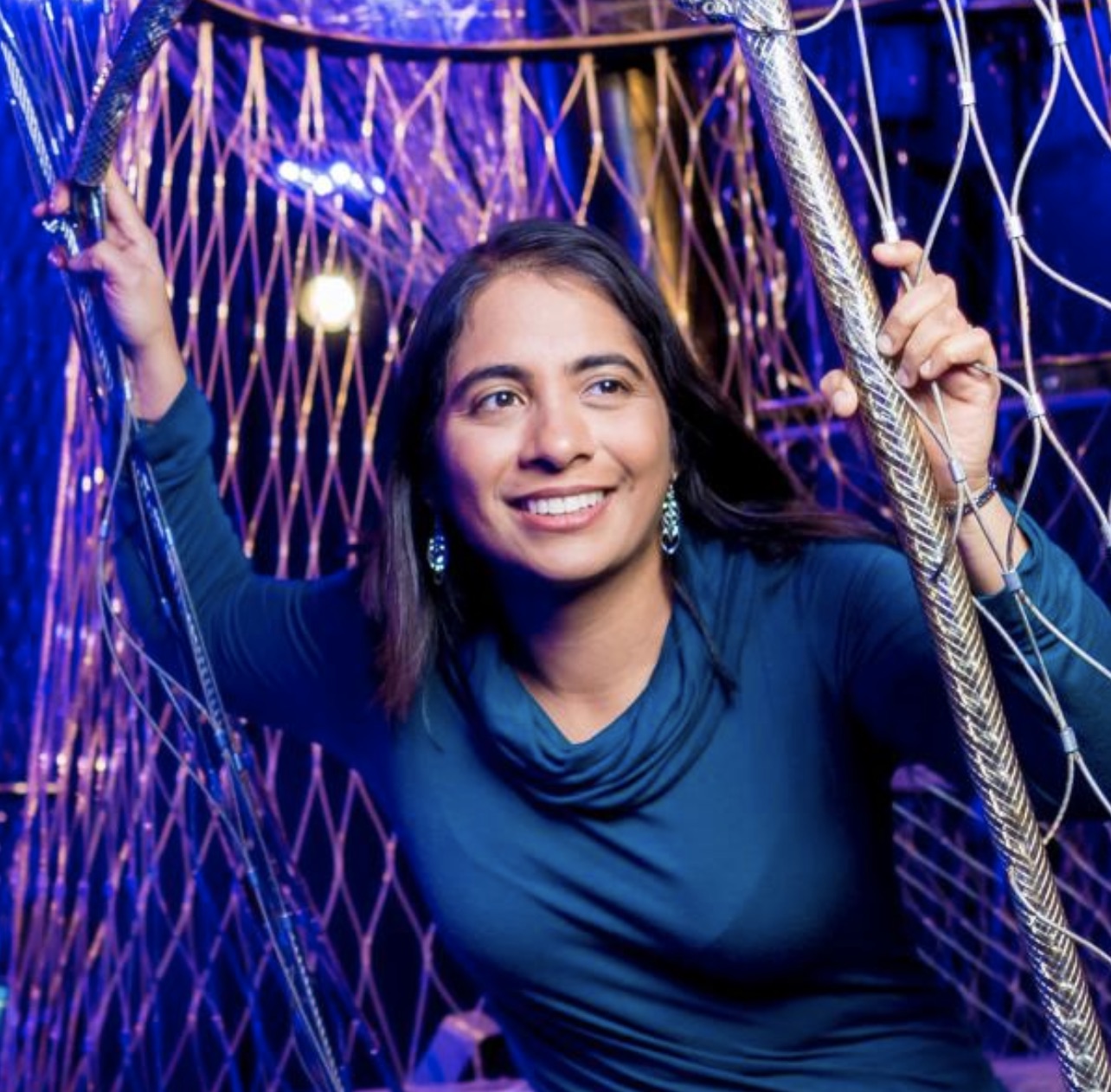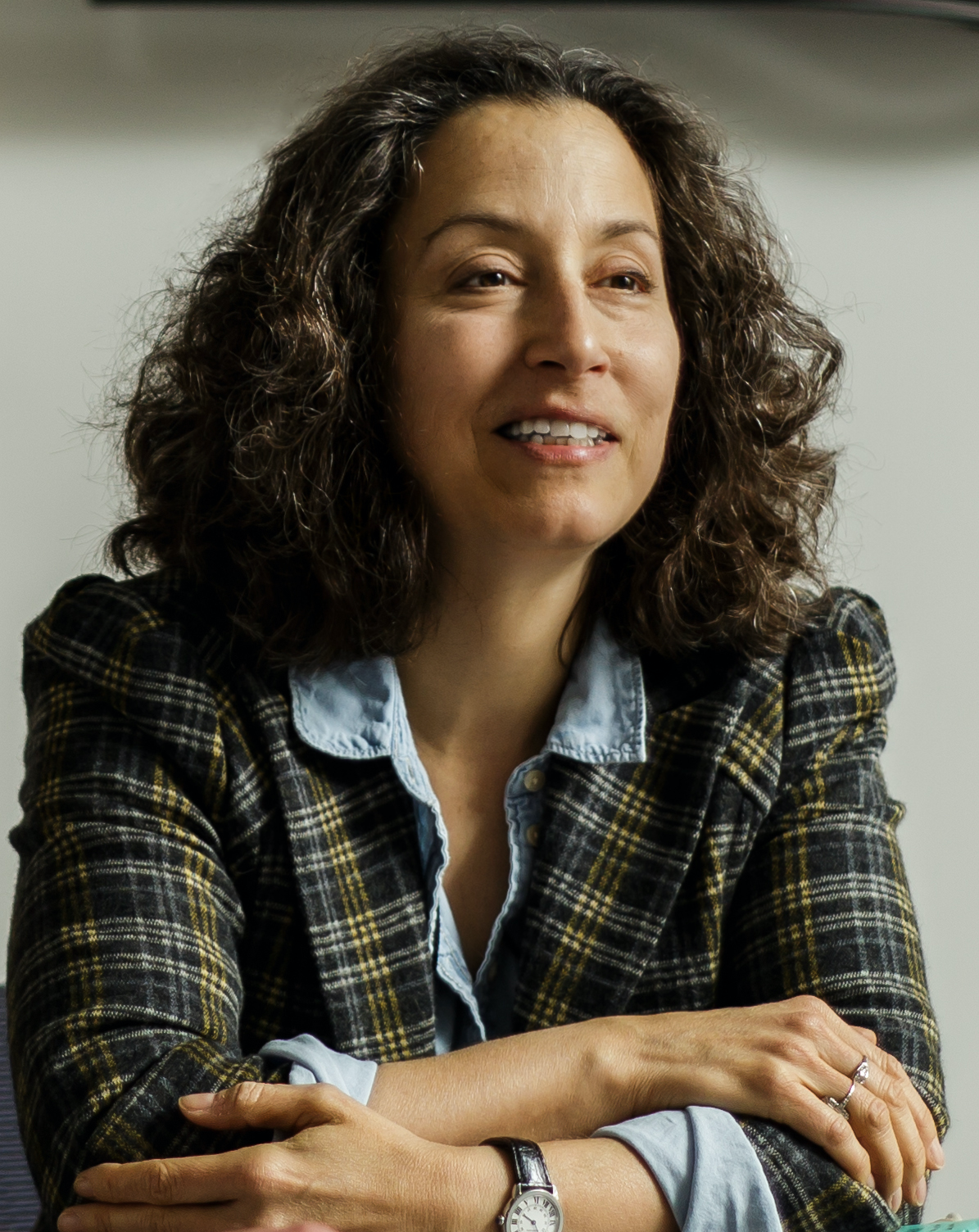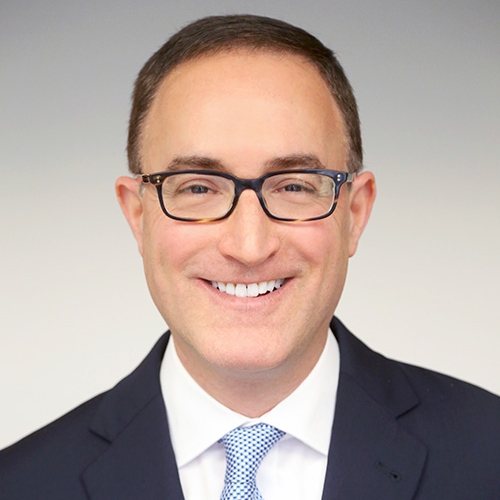Next Generation Neuroscientists: Engaging with Ethics and Society
Winter lunch series
As part of a grant from the Dana Foundation, the Center for Neuroscience and Society at Penn is reimagining neuroethics education at Penn. This winter lunch series is based on the topics that you—neuroscience graduate students and post-docs at Penn—told us that you were interested in via the survey we sent you in the fall.
By attending these sessions, you’ll not only get a free lunch, but you’ll continue to help shape the future of neuroscience and society at Penn.
RSVP is required so that we know how much food to order! Please RSVP here.
All sessions will be held in-person only at the Center for Neuroscience and Society (Goddard Building, Suite 200, 3710 Hamilton Walk).
Introduction to public engagement with Jayatri Das
Friday, January 13th, 12:00-1:30 PM
What’s the difference between public outreach and public engagement? Join the Franklin Institute’s Chief Bioscientist Dr. Jayatri Das to learn how scientists can create genuine dialog with the public and how this dialog benefits science and society. In this interactive session you will get to try out evidence-based strategies for effective communication and models for productive dialogue about science and ethics. You will later have the option of gaining practical experience in a workshop to be held on January 18 from 4:30-6:30 pm at The Franklin Institute.
 As Chief Bioscientist at The Franklin Institute, Jayatri Das helps us understand ourselves. How do our brains work? How do our neighborhoods affect our health? How will new technologies change our future? Jayatri has led exhibit development of both Your Brain, a national award-winning exhibit about the neuroscience and psychology of the human brain, and SportsZone. She also leads The Franklin Institute’s programming initiatives about materials science, nanotechnology, synthetic biology and other areas of emerging science and their impact on our everyday lives. Jayatri earned her Ph.D. in ecology and evolutionary biology from Princeton University and conducted postdoctoral research in biology at the University of Pennsylvania, investigating the biochemical processes that allow living things to adapt to different environments.
As Chief Bioscientist at The Franklin Institute, Jayatri Das helps us understand ourselves. How do our brains work? How do our neighborhoods affect our health? How will new technologies change our future? Jayatri has led exhibit development of both Your Brain, a national award-winning exhibit about the neuroscience and psychology of the human brain, and SportsZone. She also leads The Franklin Institute’s programming initiatives about materials science, nanotechnology, synthetic biology and other areas of emerging science and their impact on our everyday lives. Jayatri earned her Ph.D. in ecology and evolutionary biology from Princeton University and conducted postdoctoral research in biology at the University of Pennsylvania, investigating the biochemical processes that allow living things to adapt to different environments.
Of brains, minds, and biomarkers with Emily Largent
Thursday, January 26th, 12:00-1:30 PM
Molecular assays and brain images have been used as indicators of normal biological processes, pathogenic processes, or responses to exposures or interventions. As a result, these biomarkers are increasingly being used in research and clinical care for purposes such as diagnosis, monitoring, and risk prediction. In this session, we will work together to identify the potential benefits and challenges – ethical and legal – of using brain biomarkers, including far-reaching effects on medicine and society. Questions include: What are the risks of using biomarkers to identify preclinical disease? How should we talk about biomarkers with patients? Will using biomarkers address or exacerbate health disparities?

Emily Largent, JD, PhD, RN, is the Emanuel and Robert Hart Assistant Professor of Medical Ethics and Health Policy. She holds a secondary appointment at Penn Law, is a Senior Fellow at the Leonard Davis Institute of Health Economics, and is affiliated with the Center for Health Incentives and Behavioral Economics. Dr. Largent’s work explores ethical and regulatory aspects of human subjects research as well the social, legal, and ethical considerations that arise when research findings are translated into care. She has a particular focus on neurodegenerative diseases, including Alzheimer’s disease. Dr. Largent studied Science, Technology, and International Affairs as an undergraduate at Georgetown University and earned a second degree in nursing from Penn Nursing. She received her PhD in Health Policy, with a concentration in ethics, from Harvard University and her JD from Harvard Law School.
Diversity, equity, and inclusion in neurotechnology with Roy Hamilton
Thursday, February 2nd, 12:00-1:30 PM
Many neurotechnologies were not created with all kinds of people in mind. For many tools, such as EEG and tDCS, the race and ethnicity of a subject can impact their effectiveness. We consider the impacts of this problem, and how it can be mitigated. How does it affect research? How does it impact access to medical or consumer neurotech? As neuroscientists, in the academy and in industry, what steps can be taken to address this problem? Finally, how do the identities of neuroscientists themselves influence the nature of research developed in this field?
 Dr. Roy Hamilton is an Associate Professor in the departments of Neurology and Physical Medicine and Rehabilitation at the University of Pennsylvania, where he also directs the Laboratory for Cognition and Neural Stimulation (LCNS). His work is focused in the field of brain stimulation and has employed TMS and tDCS in a range of studies exploring a range of topics, including but not limited to cognitive control, visuospatial processing, language production, semantic memory, and creativity. He is a clinically trained behavioral neurologist and cognitive neuroscientist, and as such has dedicated his career to exploring the structure-function and network-function relationships that underpin complex human behaviors. Dr. Hamilton also serves as Director of the Penn Clinical Neurosciences Training Program, an Assistant Dean for Diversity and Inclusion for the Perelman School of Medicine, and the Vice Chair of Diversity and Inclusion for the University of Pennsylvania Department of Neurology. He attended Harvard Medical School, received his M.S. in Health Sciences and Technology from Massachusetts Institute of Technology (MIT) and completed his post-doctoral training at University of California School of Medicine, Los Angeles and the University of Pennsylvania.
Dr. Roy Hamilton is an Associate Professor in the departments of Neurology and Physical Medicine and Rehabilitation at the University of Pennsylvania, where he also directs the Laboratory for Cognition and Neural Stimulation (LCNS). His work is focused in the field of brain stimulation and has employed TMS and tDCS in a range of studies exploring a range of topics, including but not limited to cognitive control, visuospatial processing, language production, semantic memory, and creativity. He is a clinically trained behavioral neurologist and cognitive neuroscientist, and as such has dedicated his career to exploring the structure-function and network-function relationships that underpin complex human behaviors. Dr. Hamilton also serves as Director of the Penn Clinical Neurosciences Training Program, an Assistant Dean for Diversity and Inclusion for the Perelman School of Medicine, and the Vice Chair of Diversity and Inclusion for the University of Pennsylvania Department of Neurology. He attended Harvard Medical School, received his M.S. in Health Sciences and Technology from Massachusetts Institute of Technology (MIT) and completed his post-doctoral training at University of California School of Medicine, Los Angeles and the University of Pennsylvania.
Disorder or difference? with Martha Farah and Ted Brodkin
Thursday, February 9th, 12:00-1:30 PM
Many of us are working, directly or indirectly, to reduce the burden of brain disorders on humanity. But what counts as a disorder? Autism Spectrum Disorder is the best-known instance in which people may consider themselves neurodiverse rather than disordered. Conversely, conditions once regarded as normal variants may receive a diagnosis, eg ADHD. Are there objective criteria for distinguishing disorders from differences? How does disorder versus difference affect individuals’ identities, their access to treatment, our conception of brain health? What are its implications for neuroscience research?
 Dr. Martha J. Farah is the Annenberg Professor of Natural Sciences in Psychology at the University of Pennsylvania, where she also serves as Director of the Center for Neuroscience and Society. She is a cognitive neuroscientist who works on problems at the interface of neuroscience and society such as, the effects of childhood poverty on brain development, the expanding use of neuropsychiatric medications by healthy people for brain enhancement, novel uses of brain imaging, in e.g. legal, diagnostic and educational contexts, and the many ways in which neuroscience is changing the way we think of ourselves as physical, mental, moral and spiritual beings. Dr. Farah received her PhD in Experimental Psychology from Harvard University and completed her postdoctoral training at Boston University School of Medicine and Massachusetts Institute of Technology (MIT).
Dr. Martha J. Farah is the Annenberg Professor of Natural Sciences in Psychology at the University of Pennsylvania, where she also serves as Director of the Center for Neuroscience and Society. She is a cognitive neuroscientist who works on problems at the interface of neuroscience and society such as, the effects of childhood poverty on brain development, the expanding use of neuropsychiatric medications by healthy people for brain enhancement, novel uses of brain imaging, in e.g. legal, diagnostic and educational contexts, and the many ways in which neuroscience is changing the way we think of ourselves as physical, mental, moral and spiritual beings. Dr. Farah received her PhD in Experimental Psychology from Harvard University and completed her postdoctoral training at Boston University School of Medicine and Massachusetts Institute of Technology (MIT).
 Dr. Ted Brodkin is Associate Professor of Psychiatry with tenure at the Perelman School of Medicine at the University of Pennsylvania where he also co-directs the Autism Spectrum Program of Excellence and directs the Adult Autism Spectrum Program at Penn Medicine. Dr. Brodkin’s laboratory at University of Pennsylvania is focused on basic, translational, and clinical studies of social behaviors relevant to autism spectrum disorder (ASD). The Brodkin lab studies the neurobiology of social behavior phenotypes in genetic mouse models relevant to autism spectrum disorders and other neurodevelopmental disorders; the genomics of social behavior phenotypes in human autism; and development of treatments for improving social functioning, especially in adults with ASD. Dr. Brodkin received his A.B. from Harvard University and his M.D. from Harvard Medical School and completed his postdoctoral training at Yale University and Princeton University.
Dr. Ted Brodkin is Associate Professor of Psychiatry with tenure at the Perelman School of Medicine at the University of Pennsylvania where he also co-directs the Autism Spectrum Program of Excellence and directs the Adult Autism Spectrum Program at Penn Medicine. Dr. Brodkin’s laboratory at University of Pennsylvania is focused on basic, translational, and clinical studies of social behaviors relevant to autism spectrum disorder (ASD). The Brodkin lab studies the neurobiology of social behavior phenotypes in genetic mouse models relevant to autism spectrum disorders and other neurodevelopmental disorders; the genomics of social behavior phenotypes in human autism; and development of treatments for improving social functioning, especially in adults with ASD. Dr. Brodkin received his A.B. from Harvard University and his M.D. from Harvard Medical School and completed his postdoctoral training at Yale University and Princeton University.